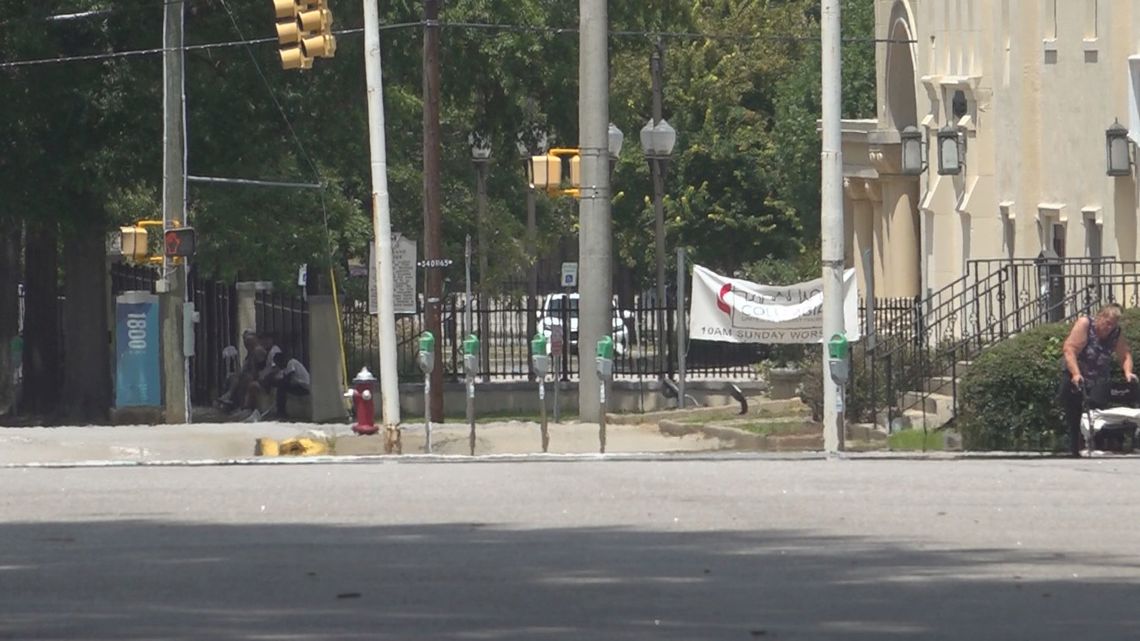Part of an $8.7 million EPA grant coming to the Midlands will be funding a project to put a reflective coating on Columbia’s roads to address the heat.
COLUMBIA, S.C. — As Columbia faces sweltering summer temperatures, city officials are working on a new initiative to reduce the effects of extreme heat in urban areas.
The effort focuses on combatting what’s known as an “urban heat island,” where buildings, roads, and sidewalks absorb and trap heat, making city centers significantly warmer than surrounding rural areas.
“You really can’t get outside your house in July [or] August,” one Columbia resident said. “Imagine sticking your head into a 350-degree oven. You can just feel the heat like billowing up. So all you want to do is walk from point A to point B and get into a cold AC and get in your car and sort of drive with the AC going.”
To address that heat, the city is planning to install smart surfaces on some of its roads and sidewalks to reflect heat.
“Part of that is applying more of a reflective pavement surface and coating on some of our roadways that will reduce some of that heat sink effect,” said Assistant City Manager Clint Shealy. “We’ve got so much street work and open parking lots in urban areas in Columbia, and those can be a real heat sink.”
The project is funded through a $8.7 million EPA grant coming to the Central Midlands Council of Governments, the same one backing a solar farm project at the city’s wastewater plant. That solar project is moving forward first, in part because federal incentives for solar development are set to expire soon.
Once that’s done, Shealy said the city will turn its focus to the smart surfaces initiative. Columbia has about $1 million from the grant for the work, but is hoping to add local dollars from the Richland County Transportation Penny Tax. Shealy says they need to plan in tandem to coat roads after they’ve been repaved.
“It would be premature for us to, and really not a wise investment, to apply a smart surface, cool pavement coating to a road that within the next two to three years is going to be resurfaced, because then we’d be doing that again,” Shealy said.
He said the city is still finalizing which roads will receive the cool coating, and work could begin in about a year once paving funds from the Penny Tax become available.
City officials say both the solar farm and smart surface projects could make a significant impact on reducing heat and lowering emissions. Developer bids for the solar farm are expected to go out in the coming months.
